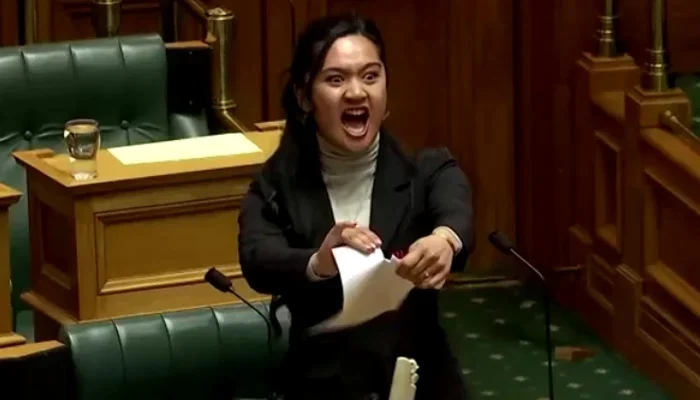Three Indigenous lawmakers in New Zealand could face a temporary suspension from Parliament after performing a haka during a debate on a controversial bill. A parliamentary committee made this recommendation on Wednesday, May 14, 2025, following an investigation into the incident that occurred last year.
The incident took place during the reading of a bill that sparked strong opposition from Māori lawmakers. The three MPs, members of Te Pāti Māori, stood and performed a haka to show their protest. The haka is a traditional Māori dance used to express strong feelings such as pride, unity, or resistance.
According to Parliament rules, such displays are not allowed during official sessions. The Privileges Committee reviewed the case and concluded that the MPs had broken the rules of conduct. Their recommendation is to suspend the three lawmakers for a short period. This would prevent them from joining debates, voting, or attending committee meetings.
The final decision will be made by the full House of Representatives. A vote is expected within the next few days. If approved, the suspension will take effect immediately. The exact duration has not yet been announced.
The haka protest happened during a heated debate on a bill that affects Māori rights in local government. Many Māori leaders believe the bill reduces their role in decision-making processes. The protest was seen by some as a way to call attention to this issue.
Te Pāti Māori has strongly opposed the suspension. They believe the haka is part of Māori identity and should not be punished. Many supporters argue that it was a peaceful way to speak out against unfair treatment. Critics, however, say all members must follow the same rules in Parliament.
This case has sparked wider public debate in New Zealand. Some citizens believe culture should be respected, even in Parliament. Others think the rules must apply equally to everyone. The discussion shows the challenge of balancing tradition with modern political rules.
The event also brings attention to ongoing issues between the government and Māori communities. Although there have been efforts to support Māori culture, some feel that true equality has not been achieved. Te Pāti Māori often uses strong actions to bring attention to problems faced by Indigenous people.
The protest and possible suspension have drawn international interest. Indigenous groups in countries like Canada, Australia, and the United States have spoken out. They worry that punishing cultural expression in a political space could set a bad example.
New Zealand is a signatory to the United Nations Declaration on the Rights of Indigenous Peoples. This document supports the right of Indigenous people to express their culture freely, including in political settings. Some experts believe that suspending MPs for a haka could go against these international rights.
The next step will be the vote in Parliament. Until then, the three MPs continue to attend sessions. However, if suspended, they could be absent from important votes and discussions.
The issue remains sensitive and continues to divide opinion. Many are watching closely to see how New Zealand balances cultural respect and parliamentary rules.

